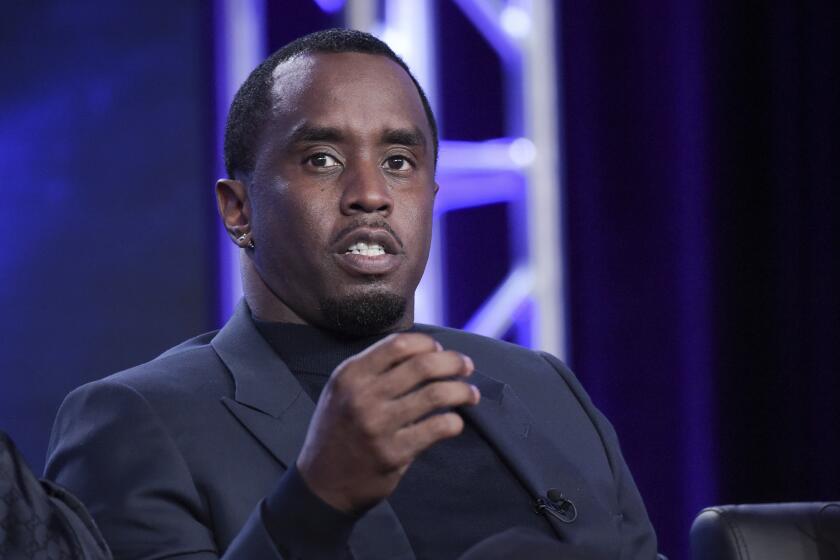Music Giants Pay Back Royalties
In an unusual pact with New York authorities, the world’s largest record labels have agreed to step up their efforts to track down a slew of recording artists who are owed back royalties of about $50 million, sources said.
As part of a deal expected to be announced today by New York Atty. Gen. Eliot Spitzer, the five companies are expected to share their latest artist contact information with one another. They also will post advertisements to find thousands of performers who may have been lost in the shuffle in recent years, sources said.
The deal could provide long-awaited paychecks to many lesser-known acts who have disappeared from the pop charts. But sources said the unpaid also included a number of prominent stars who shouldn’t be difficult to find.
A spokesman for Spitzer declined to comment.
Since the Spitzer investigation began two years ago, the companies have already paid about $25 million in royalties to artists who the companies asserted had gone missing -- or to their estates -- and are due to lay out $25 million more, sources said.
Although the sum represents a fraction of the royalties that the labels pay each year, the deal indicates that authorities are continuing to press for overhauls of the industry’s accounting practices.
Amid sustained pressure from artists, a number of the companies have revamped their royalty accounting processes in the last two years. Among other steps has been the introduction of shorter contracts that cut out royalty deductions that critics say obfuscate artists’ real earnings.
Under the New York agreement, the companies -- Vivendi Universal’s Universal Music Group, Sony Corp.’s Sony Music Entertainment, EMI Group, Bertelsmann’s Bertelsmann Music Group and privately owned Warner Music Group -- are also expected to make periodic reports of their royalty payment efforts to Spitzer, sources said.
Representatives for the major labels have denied that their companies withhold royalties from performers -- so long as they know where the artists are. But as acts are dropped from a roster or switch managers, they may become difficult to track, executives said.
“If we can’t find people,” said one executive familiar with the settlement, “we can’t give them a check.” The executive spoke on condition of anonymity.
More to Read
The biggest entertainment stories
Get our big stories about Hollywood, film, television, music, arts, culture and more right in your inbox as soon as they publish.
You may occasionally receive promotional content from the Los Angeles Times.










